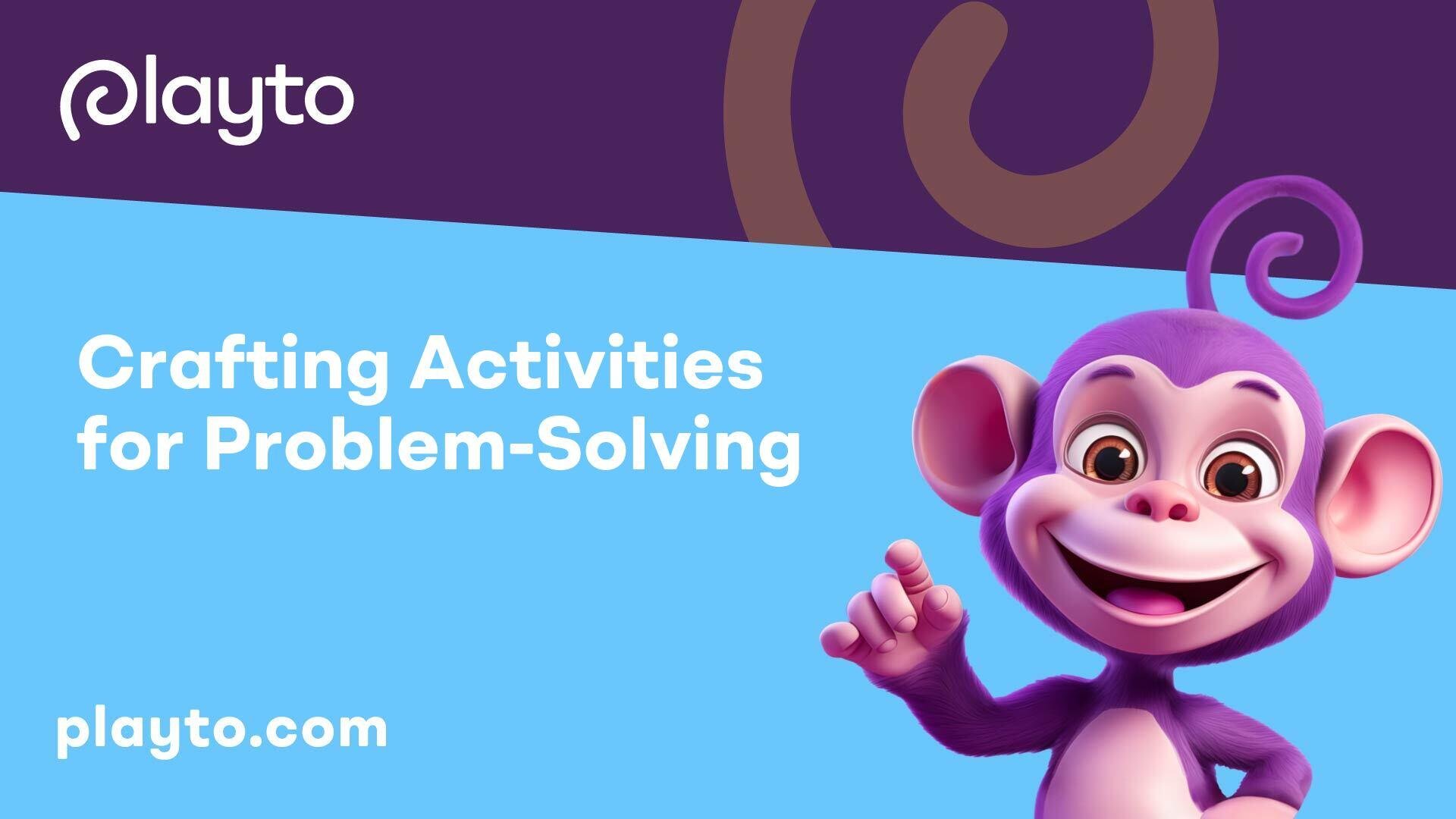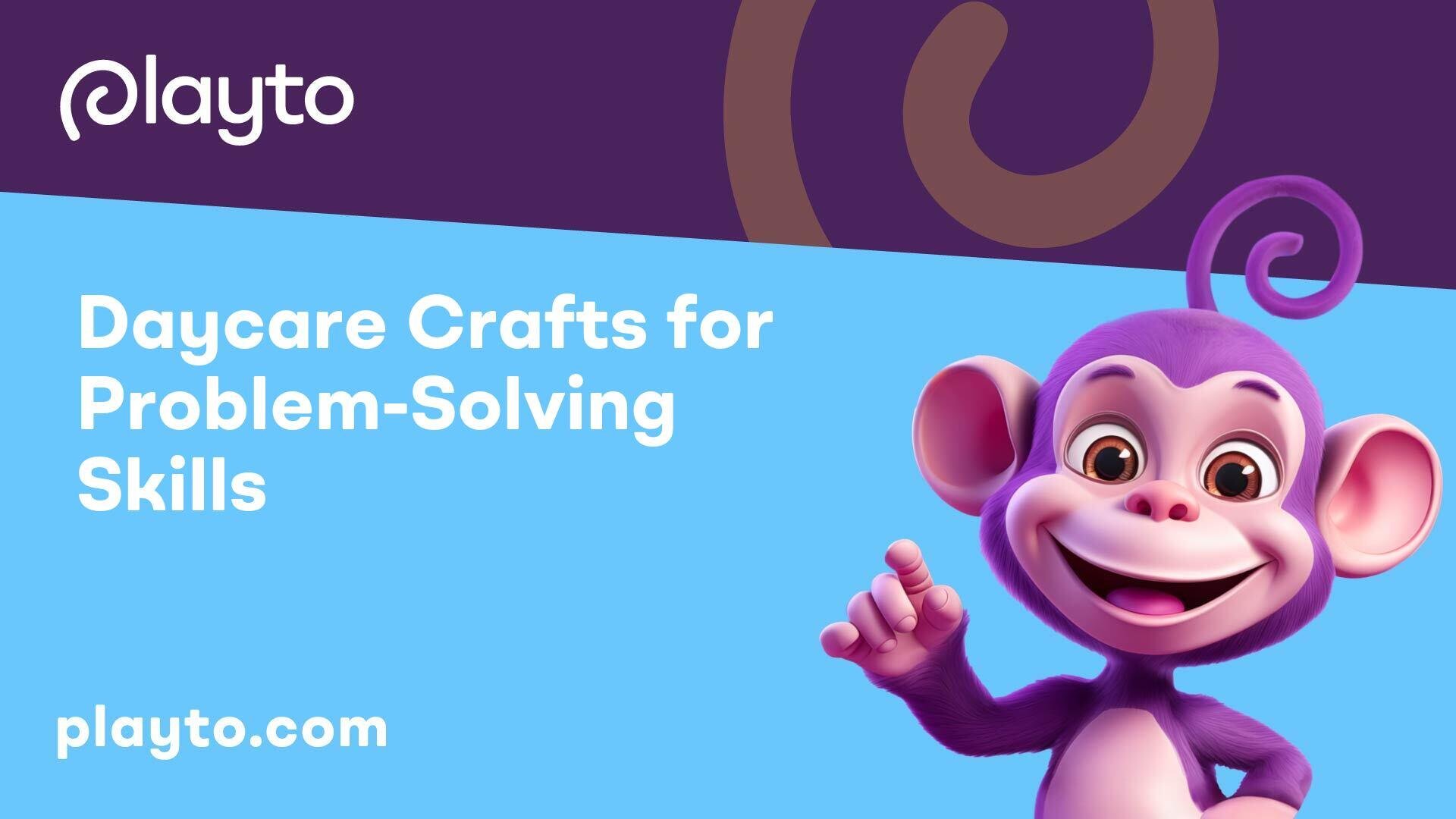
Understanding Daycare Crafts
Delving into the realm of daycare crafts unveils a world of creative opportunities that not only engage children in artistic endeavors but also play a pivotal role in their overall development. Two key aspects to focus on are the benefits of arts in daycare and how daycare crafts play a crucial role in promoting problem-solving skills.
Benefits of Arts in Daycare
Engaging children in arts and crafts within daycare settings offers a myriad of benefits that go beyond just creating beautiful masterpieces. According to Highlights, daycare crafts serve as a platform for teaching early problem-solving skills. By experimenting with different craft materials, children learn to troubleshoot projects, think creatively, and develop their cognitive abilities.
Crafting in daycare not only fosters creativity and imagination but also assists in sensory development and fine motor skills. Through painting, drawing, cutting, and pasting, children enhance their hand-eye coordination and dexterity, laying a strong foundation for future academic and extracurricular pursuits.
To explore further on the benefits of arts in daycare, consider our article on teaching colors through daycare crafts for insights on how colors impact early childhood development and learning.
Promoting Problem-Solving Skills
In daycare environments, promoting problem-solving skills through crafting plays a crucial role in nurturing children's cognitive growth and development. Encouraging preschoolers to indulge in creative activities not only allows them to express themselves but also challenges them to think critically and solve various aesthetic and technical dilemmas.
According to Raising Children Network, engaging children in creative pursuits helps them explore a variety of methods and approaches, leading to the development of problem-solving skills. By fostering an environment where trial and error is embraced, children learn to adapt, innovate, and overcome obstacles creatively.
Crafting activities serve as a canvas for children to understand cause and effect, experiment with different solutions, and exercise their analytical thinking. By nurturing problem-solving skills through art and crafts, children not only enhance their creativity but also build a solid foundation for future academic success.
To delve deeper into the connection between daycare crafts and problem-solving, you can refer to our article on why daycares need an art corner for strategies on integrating art into daycare curriculums to enhance problem-solving and critical thinking skills.

Importance of Daycare Crafts
Crafting is not only a fun and enjoyable activity for children in daycare but also plays a significant role in enhancing their overall development. Through daycare crafts, children have the opportunity to enhance their developmental skills and experience cognitive growth and learning.
Developmental Skills Enhanced
Engaging in arts and crafts activities can positively impact a child's growth and development by enhancing fine motor skills, encouraging creativity and imagination, promoting self-expression, and fostering social skills. Craft activities often involve using small materials such as beads, scissors, and paintbrushes, which require precise hand movements, helping preschoolers improve their fine motor skills, hand-eye coordination, finger dexterity, and grip strength [1]. These fine motor skills are crucial for tasks like writing, tying shoelaces, and buttoning clothes.
Cognitive Growth and Learning
Arts and crafts provide opportunities to practice fine-motor skills such as gluing, cutting, taping, scribbling, coloring, and painting, which are essential for tasks like writing, typing, and tying shoes. By engaging in these activities, children not only enhance their fine motor skills but also develop cognitive skills such as problem-solving, critical thinking, and spatial awareness.
Crafting activities in daycare help children explore their creativity, think outside the box, and express themselves through art. This creative outlet not only aids in cognitive growth but also boosts confidence and self-esteem, as children feel a sense of accomplishment from completing their crafts. Moreover, participating in crafting activities fosters social interactions, collaboration, and communication skills, as children work together, share ideas, and engage in group projects.
By recognizing the importance of daycare crafts in enhancing developmental skills and promoting cognitive growth and learning, caregivers and educators can create a nurturing environment where children can thrive creatively and intellectually. Encouraging children to engage in arts and crafts activities fosters a love for learning, boosts self-confidence, and lays the foundation for a lifelong appreciation of creativity and problem-solving.

Crafting Activities for Preschoolers
Engaging preschoolers in daycare crafts offers a multitude of developmental benefits, including fine motor skill development and cognitive skills enhancement. These activities not only foster creativity but also play a crucial role in the overall growth and learning of young children.
Fine Motor Skill Development
Craft activities in daycare environments play a pivotal role in the enhancement of fine motor skills in preschoolers. These skills are essential for tasks that require precise hand movements, such as writing, using utensils, and mastering tools. By engaging in arts and crafts, children strengthen their dexterity and coordination, laying the foundation for future tasks that demand intricate hand-eye coordination.
Craft projects often involve the use of small materials like beads, scissors, and paintbrushes, which necessitate precise hand movements. Through these activities, preschoolers improve their hand-eye coordination, finger dexterity, grip strength, and enhance their overall fine motor skills. These skills are vital for everyday activities like writing, buttoning clothes, and tying shoelaces.
Skills Developed through Crafting
- Hand-eye Coordination: Improves synchronization between vision and hand movements
- Finger Dexterity: Enhances precision and control in finger movements
- Grip Strength: Builds strength for holding and manipulating objects
- Manual Dexterity: Develops fine motor skills for detailed tasks
Cognitive Skills Enhancement
Apart from fine motor skill development, engaging in daycare crafts enhances cognitive skills in preschoolers. These activities promote problem-solving, critical thinking, and creativity, fostering cognitive growth and learning. By experimenting with various craft materials and troubleshooting projects, children learn to think analytically and develop strategies to overcome challenges.
Crafting activities serve as a platform for preschoolers to explore, experiment, and engage their cognitive faculties. Through hands-on experiences and artistic endeavors, children not only enhance their problem-solving abilities but also sharpen their critical thinking skills. These cognitive developments are foundational for academic learning and overall cognitive development in young learners.
Crafting in daycare settings goes beyond the creation of art—it serves as a holistic approach to nurturing both fine motor skills and cognitive abilities in preschoolers, laying the groundwork for their future academic and personal success.

Crafting Activities for Problem-Solving
Engaging preschoolers in crafting activities not only sparks their creativity but also plays a significant role in fostering problem-solving skills. Through craft projects, children are encouraged to think critically and enhance their cognitive development.
Crafting for Critical Thinking
Crafting serves as a platform for preschoolers to engage in critical thinking exercises. When children are presented with materials like crayons, paints, playdough, scissors, and paper, they are prompted to think creatively about how to utilize these tools to bring their ideas to life.
Problem-solving during crafting activities involves making decisions on color choices, shapes, textures, and overall design. By encouraging children to explore and experiment with different craft materials, they learn to think outside the box and find solutions to design challenges they may encounter during their crafting process.
Cognitive Development in Crafting
Crafting plays a vital role in the cognitive development of preschoolers. Completing a craft project gives children a sense of achievement and pride in their abilities, which in turn boosts their self-esteem and confidence. Positive feedback and encouragement from parents, caregivers, and teachers further enhance a child's self-assurance.
Through artistic expression using various materials, children are exposed to a multitude of cognitive tasks. They learn to follow instructions, visualize the end product, and employ problem-solving skills when faced with hurdles during the crafting process. Moreover, crafting can be a collaborative activity, allowing children to develop important social skills and work together to solve artistic challenges [3].
Crafting not only ignites creativity and artistic expression but also serves as a valuable tool for enhancing problem-solving abilities and cognitive growth in preschoolers. By encouraging children to think critically and overcome challenges through crafting, caregivers and educators can help lay a strong foundation for lifelong learning and development.

Encouraging Creative Problem-Solving
When it comes to nurturing problem-solving skills in children through daycare crafts, the approach is crucial in fostering cognitive growth and development. By engaging in creative activities with preschoolers, parents and educators can stimulate their problem-solving abilities by encouraging them to explore various ways of approaching tasks. This not only enhances their problem-solving skills but also encourages creativity and innovation in their thinking process.
Problem-Solving through Crafting
Encouraging children to engage in crafting activities provides them with opportunities to experiment with different craft materials and troubleshoot projects. By allowing them to explore, make mistakes, and find solutions independently, children develop essential problem-solving skills. Parents and educators can further enhance this by asking open-ended questions that prompt children to think critically about their creations. For instance, questions like 'Show me how many sounds you can make with the drum' or 'Tell me about what’s happening in your picture' can inspire children to think creatively and problem-solve effectively.
Fostering Cognitive Growth
Crafting activities not only promote problem-solving skills but also contribute to cognitive growth and learning in children. When engaged in hands-on activities like crafting, children develop critical thinking skills as they plan, create, and refine their projects. These activities stimulate their cognitive abilities, improving their attention to detail, spatial awareness, and decision-making processes. As children experiment with different materials and techniques, they enhance their cognitive development, laying a strong foundation for future learning and problem-solving challenges.
By encouraging children to express their creativity through crafting and providing them with opportunities to explore and solve problems independently, parents and educators play a crucial role in shaping children's problem-solving abilities and fostering their cognitive growth. Crafting activities not only offer a fun and engaging outlet for children to express themselves but also serve as a valuable tool for developing essential skills that will benefit them both in the present and in their future endeavors.
Artistic Expression in Daycare
Artistic expression plays a vital role in the development of children in daycare settings, fostering self-expression and imagination. Through arts and crafts activities, children can explore and communicate their thoughts and emotions in a creative and engaging manner.
Arts & Crafts for Self-Expression
Engaging in arts and crafts activities provides children with a platform for self-expression. By participating in these creative endeavors, children can communicate their feelings, ideas, and experiences in a non-verbal way. This process not only helps children express themselves but also encourages them to explore their identity and develop a deeper understanding of their emotions.
Art projects in daycare settings often involve a variety of materials and techniques, allowing children to experiment with different forms of expression. Whether through painting, drawing, or sculpting, each art activity provides children with a unique outlet for expressing themselves and sharing their perspectives with others.
Encouraging Imagination
Arts and crafts activities in daycare settings serve as a catalyst for encouraging imagination and creativity in children. By engaging in creative tasks, children are encouraged to think outside the box, explore new ideas, and expand their imagination. This process of imaginative exploration helps children develop problem-solving skills, critical thinking abilities, and innovative approaches to various challenges.
Through artistic expression, children can transform ordinary materials into imaginative creations, fostering a sense of wonder and curiosity. By encouraging children to explore their creativity through arts and crafts, daycare providers can instill a lifelong love for learning and a deep appreciation for the arts in young minds.
By incorporating arts and crafts activities that promote self-expression and encourage imagination, daycare providers can create a nurturing environment that supports the holistic development of children. Through these creative endeavors, children can not only explore their own creativity but also build confidence, develop essential skills, and cultivate a lifelong passion for artistic expression.
Social Skills Through Crafting
In the realm of daycare, arts and crafts play a significant role in fostering social skills among children. Engaging in crafting activities not only ignites creativity but also promotes collaboration, communication, and valuable social interactions within a group setting.
Collaboration and Communication
According to Mothercould, arts and crafts in daycare settings require children to collaborate and communicate effectively. Whether working individually or in a group, crafting provides opportunities for children to engage with others, share ideas, and work towards a common goal. Through collaborative projects, children learn the importance of teamwork, cooperation, and sharing responsibilities.
Crafting activities often involve sharing materials, taking turns, and expressing ideas to peers. These interactions help children develop essential communication skills, such as expressing thoughts clearly, listening to others, and providing constructive feedback. In a daycare setting, fostering collaboration and communication through crafting sets the foundation for strong social skills that are vital for future interactions.
Social Interactions in Crafting
Crafting can be a communal experience that encourages social interactions among children. As highlighted by Brightwheel, group crafting projects in daycare settings offer children the opportunity to engage with their peers, build friendships, and navigate social dynamics. Working together on creative tasks enables preschoolers to learn how to share ideas, compromise, and solve problems as a team.
In group crafting activities, children learn to respect each other's opinions, negotiate roles, and build relationships based on cooperation. These social interactions foster a sense of community and belonging among children, creating a supportive environment where they can learn, grow, and thrive socially.
Crafting in daycare is not only about creativity and artistic expression; it serves as a platform for children to develop strong social skills that will benefit them in various social settings. By embracing collaboration, communication, and social interactions through crafting, children can enhance their interpersonal skills, deepen their connections with peers, and navigate social situations with confidence and ease.
Promoting Confidence and Self-Esteem
Engaging in daycare crafts not only enhances children's creativity and problem-solving skills but also plays a significant role in building their confidence and self-esteem. Let's explore how accomplishments in crafting and building self-confidence are intertwined with arts and crafts activities in daycare settings.
Accomplishments in Crafting
Completing a craft project provides children with a sense of accomplishment and pride in their abilities, boosting their self-esteem, confidence, and belief in their own capabilities. As children follow step-by-step instructions and transform simple materials into unique creations, they experience a tangible result, fostering a sense of achievement. This sense of accomplishment can be further reinforced through positive feedback and encouragement from parents, caregivers, and teachers during the crafting process.
Crafting offers children the opportunity to explore their creativity, make decisions, and see their ideas come to life. By showcasing their finished projects, children not only celebrate their creativity but also gain recognition for their efforts. Displaying their crafts can serve as a reminder of their accomplishments, boosting their self-esteem and instilling a sense of pride in their work.
Building Self-Confidence
Arts and crafts activities nurture confidence in children by providing a structured process with a clear beginning and end [3]. Each step in the crafting process, from planning and designing to execution and completion, offers children the opportunity to practice patience, focus, and problem-solving skills. This structured approach allows children to feel a sense of accomplishment at each stage, contributing to a growing sense of confidence.
Crafting also encourages children to experiment, take risks, and learn from mistakes. By exploring different materials, techniques, and ideas, children develop resilience and a growth mindset. Overcoming challenges during crafting activities teaches children that it's okay to make errors and that learning from them is part of the creative process. This mindset shift promotes self-confidence and a willingness to tackle new challenges with enthusiasm.
Through the process of crafting, children learn to trust their creative instincts, make decisions, and express themselves artistically. The combination of accomplishment and self-expression in daycare crafts contributes to the overall development of children's confidence and self-esteem.
By recognizing and celebrating children's achievements in crafting and providing them with opportunities to explore their creativity, daycare settings play a vital role in fostering self-confidence and nurturing positive self-esteem in young learners. Craft activities not only enable children to express themselves creatively but also empower them to believe in their capabilities and embrace new challenges with confidence.
References
[1]: https://mybrightwheel.com/blog/preschool-crafts
[2]: https://childrensmedicalgroup.net/how-do-arts-and-crafts-help-child-development/
[3]: https://www.mothercould.com/posts/arts-crafts-child-development
[5]: https://parents.highlights.com/5-developmental-skills-kids-can-learn-arts-and-crafts
